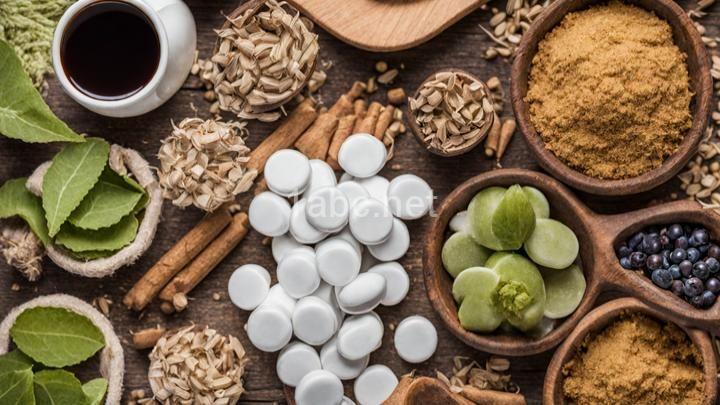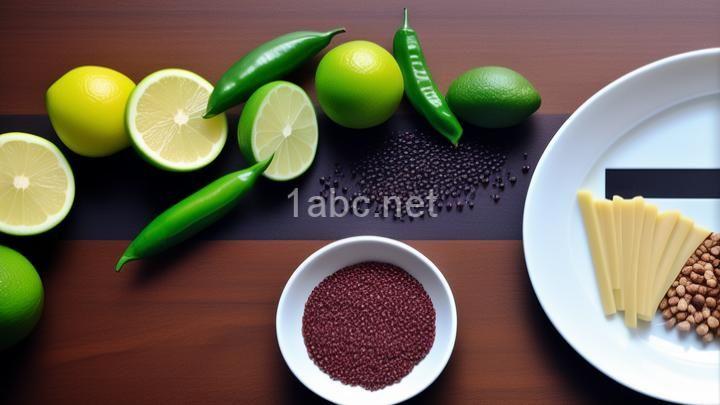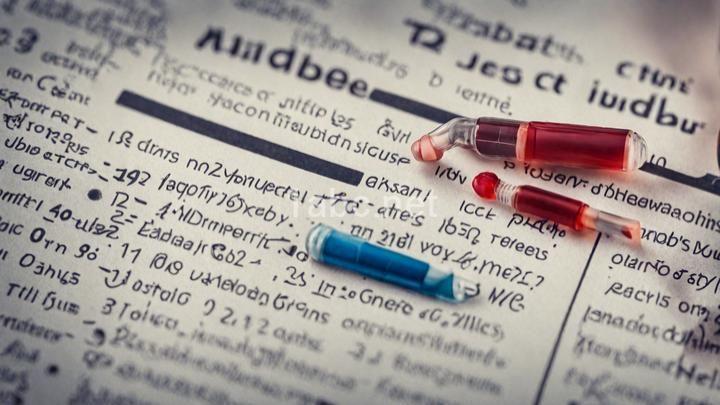Exploring Alternative Therapies for Diabetes Management

Introduction:
Welcome readers! In today's blog post, we will dive into the world of alternative therapies for diabetes management. Living with diabetes can be challenging, but with the right tools and strategies, it is possible to lead a fulfilling and healthy life. In this blog post, we will explore some alternative therapies that may complement traditional diabetes management techniques. So grab a cup of tea, get comfortable, and let's embark on this journey together.
Understanding Diabetes:
Before we delve into alternative therapies, let's take a moment to understand what diabetes is and how it impacts daily life. Diabetes is a chronic condition that affects how your body regulates blood sugar levels. There are two main types of diabetes: type 1 and type 2. Type 1 diabetes is an autoimmune disease where the body does not produce enough insulin, while type 2 diabetes occurs when the body becomes resistant to insulin or does not produce enough of it.
Living with diabetes requires careful management to prevent complications. Uncontrolled diabetes can lead to serious health issues such as heart disease, kidney damage, and nerve damage. This is why it is crucial to manage diabetes effectively.
Traditional Diabetes Management Techniques:
Before we explore alternative therapies, let's briefly discuss some well-established methods for managing diabetes. Traditional diabetes management techniques typically involve medication, dietary changes, and regular exercise.
Medication plays a vital role in controlling blood sugar levels. Depending on the type and severity of diabetes, individuals may require insulin injections or oral medications. These medications help regulate blood sugar levels and prevent complications.
Dietary changes are also crucial for diabetes management. A balanced diet that includes whole grains, fruits, vegetables, lean proteins, and healthy fats can help control blood sugar levels. Portion control and monitoring carbohydrate intake are essential components of a diabetes-friendly diet.
Regular exercise is another key aspect of diabetes management. Physical activity helps improve insulin sensitivity and lowers blood sugar levels. Engaging in activities such as walking, swimming, or cycling for at least 30 minutes most days of the week can have significant benefits for individuals with diabetes.
While these traditional management techniques are effective for many people, they may not work for everyone. This is where alternative therapies come into play. Let's explore some of these therapies and their potential benefits for diabetes management.
III. Exploring Alternative Therapies:
A. Acupuncture:
Acupuncture is an ancient Chinese practice that involves inserting thin needles into specific points on the body. It is believed to restore the flow of energy, known as Qi, and promote healing. Some studies suggest that acupuncture may help regulate blood sugar levels and improve insulin sensitivity.
While acupuncture has gained popularity in recent years, there are still concerns and misconceptions surrounding its use in diabetes management. One common concern is the fear of needles. However, acupuncture needles are much thinner than the needles used for injections, making the process relatively painless.
There are also success stories and research findings that support the use of acupuncture for diabetes management. For example, a study published in the Journal of Traditional Chinese Medicine found that acupuncture combined with dietary modifications resulted in improved blood sugar control in individuals with type 2 diabetes.
B. Herbal Remedies:
Herbal remedies have been used for centuries in various traditional medicine systems to manage diabetes symptoms. Several herbs have shown potential in helping regulate blood sugar levels and improve insulin sensitivity.
Some herbs commonly used for diabetes management include bitter melon, cinnamon, fenugreek, and ginseng. Bitter melon, for example, contains compounds that can help lower blood sugar levels. Cinnamon has also been shown to improve insulin sensitivity.
It is important to note that while herbal remedies can be beneficial, they should be used with caution. It is crucial to consult with a healthcare professional before incorporating any herbs into your diabetes management plan. Some herbs may interact with medications or have side effects, so it is important to consider safety precautions.
C. Mindfulness-Based Stress Reduction (MBSR):
Living with diabetes can be stressful, and chronic stress can negatively impact blood sugar control. Mindfulness-Based Stress Reduction (MBSR) techniques can help individuals cope with diabetes-related stress and improve overall well-being.
MBSR techniques involve practices such as meditation, deep breathing exercises, and yoga. These practices help individuals cultivate awareness and acceptance of the present moment, reducing stress and promoting emotional well-being.
There are several resources and apps available that can guide individuals in practicing MBSR. These tools provide guided meditations and breathing exercises that can be accessed anytime, anywhere.
D. Biofeedback Therapy:
Biofeedback therapy is a technique that helps individuals gain control over their bodily functions. It involves using sensors to measure physiological responses such as heart rate, blood pressure, and muscle tension. By providing real-time feedback, individuals can learn to control these responses and improve their overall health.
Biofeedback therapy has shown promise in diabetes management. For example, heart rate variability training, a type of biofeedback therapy, has been shown to improve blood sugar control and reduce diabetes-related complications.
Different types of biofeedback techniques, such as thermal biofeedback or electromyography, can be used to target specific areas of concern for individuals with diabetes. It is important to consult with a healthcare professional or a trained biofeedback therapist to determine which type of biofeedback therapy is best suited for your needs.
IV. Integrating Alternative Therapies into Daily Life:
Now that we have explored some alternative therapies for diabetes management, let's discuss how to integrate these therapies into daily life. It is important to remember that alternative therapies should complement traditional methods and not replace them entirely. Here are some practical tips for incorporating alternative therapies into your diabetes management plan:
- Consult with a healthcare professional: Before trying any new therapies, it is essential to consult with a healthcare professional. They can provide guidance on the safety and effectiveness of alternative therapies and help you create an individualized plan.
- Keep a journal: Keeping a journal can help you track the effects of alternative therapies on your diabetes management. Record your blood sugar levels, medication usage, dietary changes, and any alternative therapies you are trying. This can help you identify patterns and determine what works best for you.
- Set realistic goals: When incorporating alternative therapies, set realistic goals and expectations. Remember that managing diabetes is a lifelong journey, and it may take time to see results. Be patient with yourself and celebrate small victories along the way.
- Stay consistent: Consistency is key when it comes to alternative therapies. Whether it's acupuncture, herbal remedies, mindfulness practices, or biofeedback therapy, consistency is crucial for seeing results. Make these therapies a part of your daily routine and stick to them.
Conclusion:
In conclusion, exploring alternative therapies for diabetes management can be a valuable addition to traditional methods. Acupuncture, herbal remedies, mindfulness-based stress reduction, and biofeedback therapy offer unique approaches to managing diabetes symptoms and improving overall well-being. However, it is important to consult with a healthcare professional before incorporating any new therapies into your diabetes management plan.
Remember, diabetes management is not a one-size-fits-all approach. What works for one person may not work for another. It is crucial to personalize your diabetes management plan and explore different strategies until you find what works best for you.
Living with diabetes can be challenging, but with the right tools and support, it is possible to live a fulfilling and healthy life. So, embrace the journey, stay positive, and remember to always consult with a healthcare professional before exploring alternative therapies for diabetes management.
We would love to hear from you! Have you tried any alternative therapies for diabetes management? Share your experiences or ask questions in the comments section below. Let's support each other on this journey towards better diabetes management!
FREQUENTLY ASKED QUESTIONS
What is Exploring Alternative Therapies for Diabetes Management?
Exploring Alternative Therapies for Diabetes Management refers to the investigation and utilization of non-conventional approaches to help in the management of diabetes. These alternative therapies may include various practices and interventions such as herbal medicine, acupuncture, yoga, meditation, and dietary supplements, among others. The goal is to complement or enhance traditional treatment methods for diabetes, such as medication and lifestyle modifications, with alternative approaches that may potentially improve blood sugar control and overall well-being. It's important to note that while some alternative therapies may have benefits, they should always be discussed with healthcare professionals and used alongside conventional medical care.
How can alternative therapies help in managing diabetes?
Alternative therapies, when used in conjunction with regular medical treatment, may help in managing diabetes. Here are a few ways they can potentially provide support:
- Acupuncture: Some studies suggest that acupuncture may help in improving blood sugar control and reducing symptoms associated with diabetes, such as neuropathy or pain.
- Herbal remedies: Certain herbs, such as bitter melon, ginger, cinnamon, and fenugreek, have been traditionally used to help lower blood sugar levels or improve insulin sensitivity. However, it's important to consult with a healthcare provider before trying any herbal remedies due to potential side effects and interactions with other medications.
- Mind-body techniques: Practices like yoga, meditation, and tai chi can help in managing stress, promoting relaxation, and improving overall well-being, which indirectly benefits blood sugar control.
- Dietary supplements: Some dietary supplements, like alpha-lipoic acid, coenzyme Q10, and chromium, have been studied for their potential benefits in managing diabetes. However, it's important to note that evidence for their effectiveness is limited, and their use should be discussed with a healthcare provider.
It's important to emphasize that alternative therapies should never replace conventional medical treatment for diabetes. They should be used as complementary strategies under the guidance of a healthcare professional to ensure safety and efficacy.
Are alternative therapies safe for people with diabetes?
Alternative therapies can refer to a wide range of practices that are not considered part of conventional medicine. Since alternative therapies vary greatly in type and effectiveness, it is essential for people with diabetes to approach them with caution. Some alternative therapies may have potential benefits in managing diabetes symptoms, while others may be ineffective or even harmful. It is crucial for individuals with diabetes to discuss any alternative therapies they are considering with their healthcare team to ensure their safety and determine if they can be integrated into their overall diabetes management plan.
What are some common alternative therapies for diabetes management?
There are several alternative therapies that are commonly used for diabetes management. Here are a few examples:
- Acupuncture: This traditional Chinese therapy involves inserting thin needles into specific points on the body to stimulate energy flow and promote overall well-being. Some studies suggest that acupuncture may help improve blood sugar control in people with diabetes.
- Herbal remedies: Certain herbs and plants, such as cinnamon, fenugreek, and bitter melon, have been traditionally used in various cultures to help regulate blood sugar levels. While more research is needed to fully understand their effectiveness, some studies have shown promising results.
- Yoga: Practicing yoga regularly can provide numerous benefits for diabetes management. Yoga combines physical postures, breathing exercises, and meditation, which can help reduce stress, improve insulin sensitivity, and enhance overall health.
- Mind-body techniques: Techniques such as meditation, deep breathing exercises, and guided imagery can be effective in reducing stress levels and promoting relaxation. Since stress can negatively impact blood sugar control, these techniques may indirectly benefit diabetes management.
- Supplements: Certain vitamins and minerals, such as vitamin D and magnesium, have been linked to improved blood sugar control. However, it is important to consult with a healthcare professional before starting any new supplements, as they may interact with other medications or have potential side effects.
It's important to note that alternative therapies should never replace standard medical care for diabetes. Always consult with a healthcare professional before incorporating any alternative therapies into your diabetes management plan.




